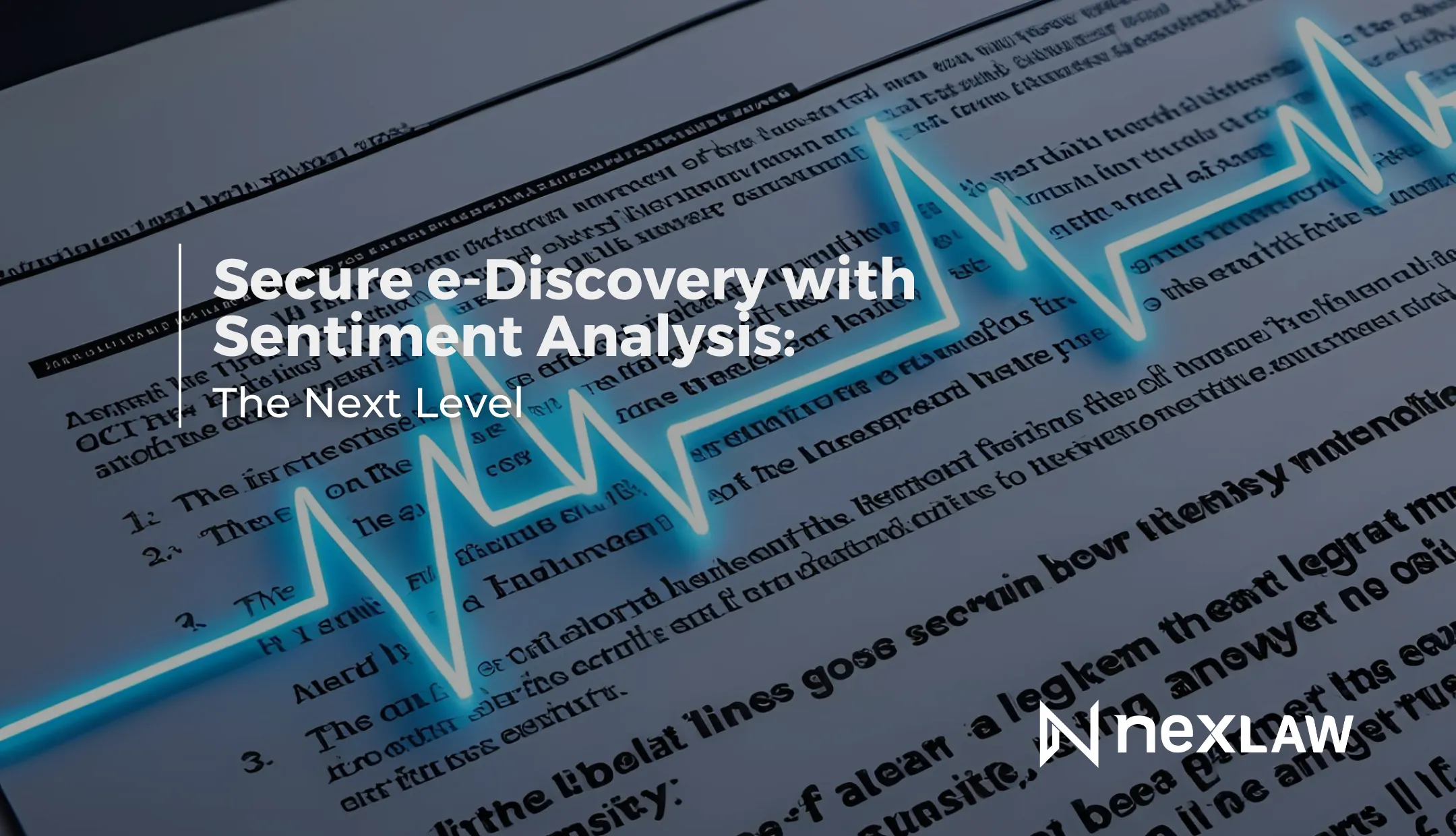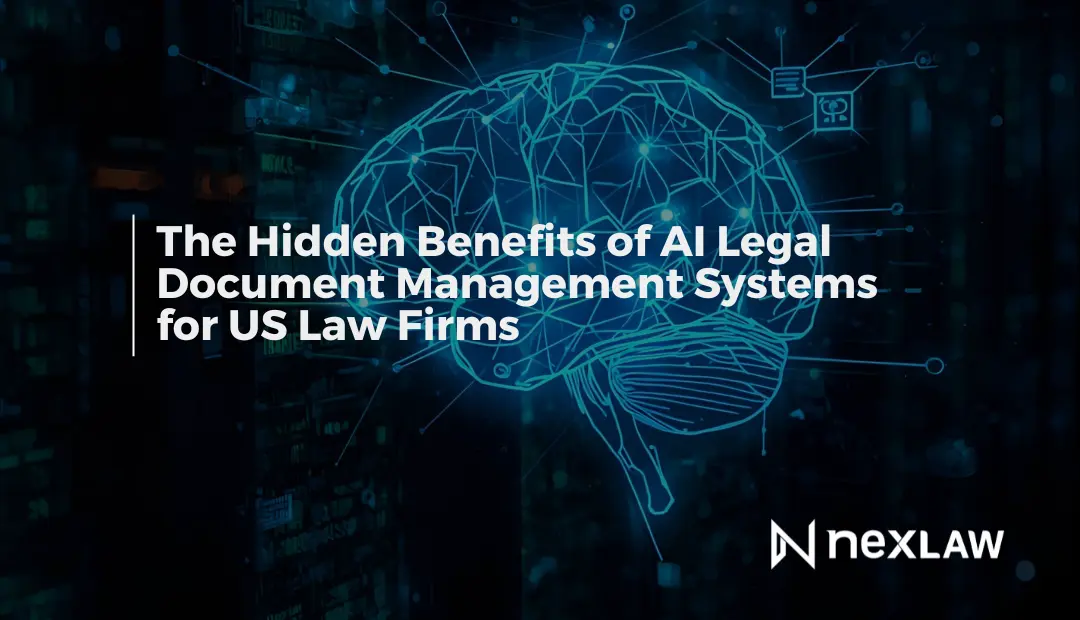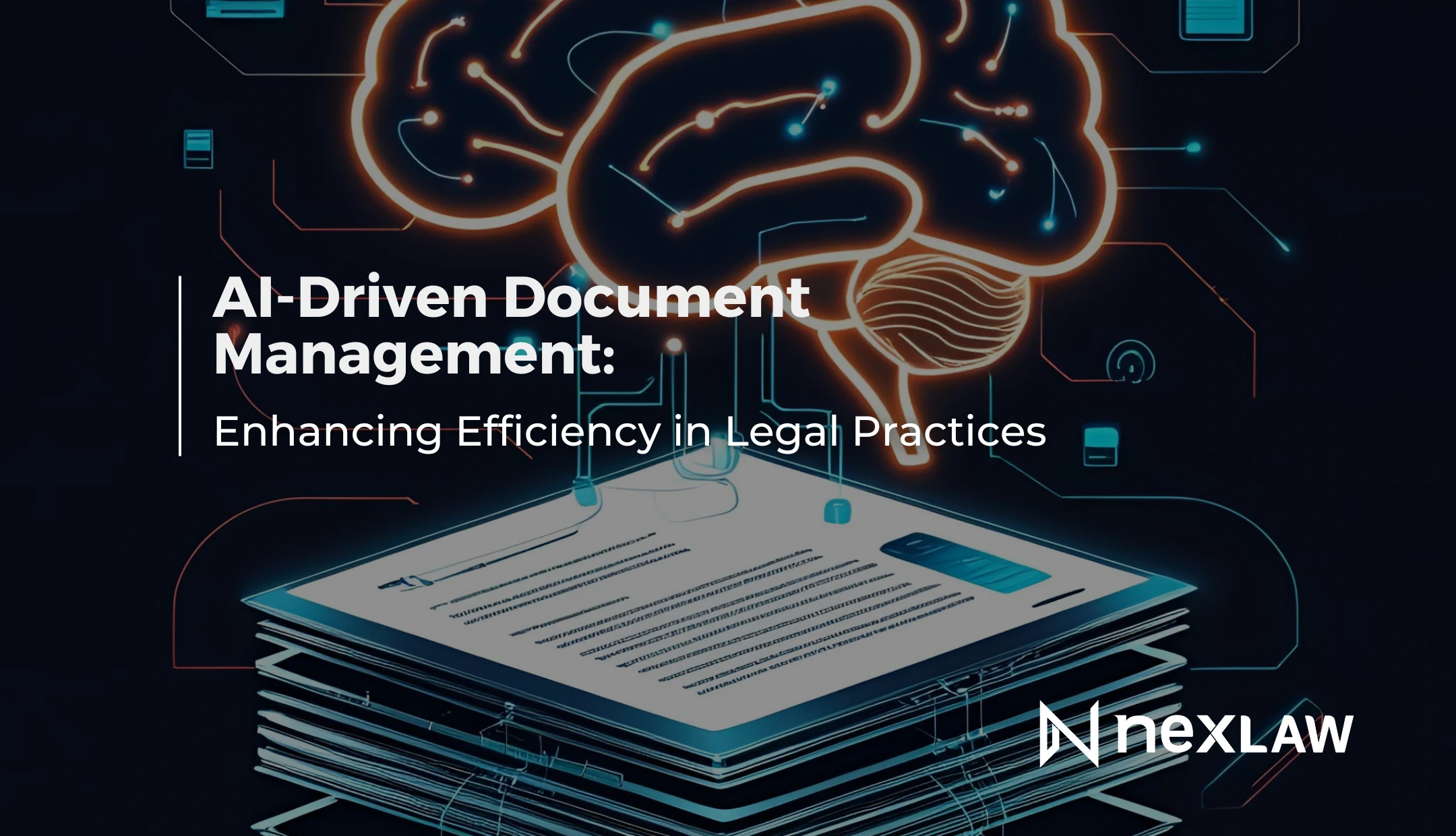Secure e-Discovery with Sentiment Analysis: The Next Level
E-discovery entered a revolutionary phase in 2025 when the SRA approved the first AIdriven law firm, Garfield.Law Ltd, demonstrating how AI can provide regulated legal services while maintaining professional standards. This milestone coincides with breakthrough developments in sentiment analysis technology that enable attorneys to identify documents by emotional tone, urgency, and interpersonal dynamics revealing smoking guns that conventional keyword searches overlook.
Unlock Legal Insights Instantly!
Recent Skills survey data from 100 major law firms shows that while legacy solutions like Contract Companion (61%) and Intapp Time (58%) remain widely adopted, firms are beginning to explore advanced AI capabilities that go beyond traditional document review to emotional intelligence analysis.
Beyond Traditional Keyword Discovery
The Emotional Intelligence Revolution
Traditional e-discovery relies on keyword searches and date ranges, missing the emotional context that often determines case significance. Sentiment analysis identifies anger, frustration, concern, or deception in communications, emotions that frequently indicate critical evidence.
Advanced sentiment capabilities:
- Emotional tone detection: Identifying anxiety, anger, or deception in email communications
- Urgency analysis: Flagging documents showing stress or time pressure patterns
- Relationship dynamics mapping: Tracking interpersonal tensions through communication patterns
- Deception indicators: Detecting linguistic patterns suggesting concealment or misrepresentation
According to Bloomberg Law research from April 2025, “AI-powered case law research tools help lawyers easily find leading case law, guiding legal principles, and best language to support arguments,” but sentiment analysis adds the crucial human element that reveals the story behind the legal documents.
Security Framework for Emotional Analysis
The Sawaryn & Partners Law Firm implementation demonstrates how advanced AI systems can maintain “complete data security, guaranteeing that input and output information is not shared with external organizations or used for AI model training.” This model provides the security framework necessary for sentiment analysis of privileged communications.
Critical security requirements:
- End-to-end encryption: Protecting sensitive communications during AI emotional analysis
- On-premise deployment options: Maintaining data control for highly confidential matters
- Audit trail documentation: Complete tracking of sentiment analysis and human review processes
- Professional responsibility compliance: Meeting evolving state bar AI ethics requirements
Practical Applications in Modern Litigation
Uncovering Hidden Evidence Through Emotional Context
Legal expert predictions for 2025 emphasize that “AI-induced gaps in associates’ knowledge and skill bases will emerge,” making sentiment analysis tools essential for junior attorneys who may miss emotional cues that experienced litigators would recognize.
Discovery enhancement applications:
- Timeline correlation: Matching emotional peaks with key dates and decisionmaking moments
- Key player identification: Finding individuals showing stress or knowledge of problematic issues
- Communication authenticity assessment: Detecting inconsistencies between stated positions and private emotions
- Witness preparation insights: Understanding emotional states for effective examination strategies
Streamlined Document Review and Strategic Prioritization
The high abandonment rate for certain AI tools with firms stopping use of major platforms citing “cost concerns and a lack of ROI” demonstrates the importance of targeted AI applications like sentiment analysis that provide measurable strategic value.
Efficiency benefits:
- Automated emotional triage: Flagging high-emotion documents for priority human review
- Context clustering: Grouping documents by emotional themes and relationship dynamics
- Quality scoring: Ranking documents by potential evidentiary value based on emotional content
- Pattern recognition: Identifying communication trends and emotional trajectories over time
Professional Responsibility in Sentiment Analysis
Compliance with Evolving Standards
With 16 state bars addressing or planning to address AI and legal ethics, sentiment analysis implementation must comply with emerging professional responsibility standards. All nine ethics opinions issued emphasize lawyers’ supervisory duties related to AI use, particularly relevant for emotional analysis that could reveal privileged information.
Compliance requirements:
- Human oversight protocols: Attorney review of all sentiment-flagged privileged communications
- Accuracy verification: Independent confirmation of emotional context interpretations
- Client disclosure obligations: Transparent communication about AI-assisted discovery methods
- Quality control measures: Systematic verification of sentiment analysis findings
Managing Court Acceptance and Opposing Counsel
Legal Futures analysis indicates that “2025 will see a breakthrough in AI confidence, linked to improved accuracy and personalisation of AI platforms.” This increased confidence enables more sophisticated applications like sentiment analysis in formal litigation settings.
Court acceptance strategies:
- Methodology documentation: Clear explanation of sentiment analysis techniques and limitations
- Expert witness preparation: Technical experts available to explain AI emotional analysis methods
- Parallel verification: Traditional discovery methods confirming sentiment-based findings
- Professional standard compliance: Adherence to established e-discovery protocols and emerging AI guidelines
Technology Integration and Quality Assurance
Seamless Platform Integration
Industry analysis reveals that “firms are not rushing to replace established products with newer AI-driven alternatives,” emphasizing the importance of sentiment analysis tools that integrate with existing e-discovery platforms rather than requiring complete system replacement.
Integration essentials:
- Native e-discovery compatibility: Working within current discovery management systems
- Review platform connectivity: Sentiment insights delivered through familiar interfaces
- Production workflow integration: Emotional context included in appropriate document productions
- Billing system coordination: Accurate time tracking for AI-assisted emotional analysis
Verification Protocols and Quality Control
Given the specialized nature of emotional analysis, implementation requires robust verification protocols ensuring that sentiment interpretations accurately reflect communication context and legal significance.
Quality control measures:
- Multi-reviewer confirmation: Human verification of high-impact sentiment findings
- Cross-platform validation: Comparing sentiment results across multiple AI systems
- Expert linguistic review: Professional verification of complex emotional interpretations
- Continuous accuracy monitoring: Regular assessment of sentiment analysis performance against case outcomes
Strategic Advantages and Competitive Benefits
Enhanced Settlement Negotiations
Sentiment analysis provides powerful negotiation advantages by revealing opposing party emotional states, internal conflicts, and decision-making pressures through their own communications—information that traditional discovery methods cannot capture.
Negotiation benefits:
- Leverage assessment: Understanding opponent stress levels and internal pressure points
- Timing optimization: Identifying emotional peaks for maximum settlement pressure application
- Strategy development: Tailoring approaches based on revealed personality and relationship dynamics
- Risk evaluation: Assessing opponent confidence levels and case strength perceptions
Market Differentiation Through Emotional Intelligence
As Legal Futures predicts, “AI use by legal professionals becomes the industry standard” in 2025, firms that master advanced applications like sentiment analysis will differentiate themselves through superior case preparation and strategic insight.
Measuring Success and Strategic Value
Expert predictions indicate that law firms will “adopt product-focused mindsets, moving beyond traditional services” as AI enables new value creation. Sentiment analysis represents this evolution by transforming document review from administrative task to strategic intelligence gathering.
Performance metrics:
- Document review acceleration: Reduced time to identify emotionally significant evidence
- Hit rate improvements: Higher percentage of strategically relevant documents in review samples
- Settlement optimization: Better outcomes through emotional intelligence insights
- Client satisfaction enhancement: Superior case preparation and strategic communication
Transform Your Discovery Practice with Emotional Intelligence
Discovery is evolving from keyword searches to understanding emotional context. AIpowered sentiment analysis helps reveal intent, tone, and credibility often missed in traditional review.
NexLaw AI brings emotional intelligence into your litigation strategy through:
- NeXa AI Assistant Includes built-in sentiment analysis tools to detect tone shifts, emotional cues, and communication context.
- ChronoVault Maps emotional patterns across case timelines, highlighting shifts in tone that support narrative development.
- TrialPrep Integrates sentiment insights to assess witness credibility and build persuasive, emotionally resonant arguments.
Gain deeper insight into human behavior, strengthen your case themes, and present more compelling stories in court.
Book a Demo – See how NexLaw uncovers emotional context in discovery
Explore Plans – Includes a free 3-day trial to experience sentiment analysis in action
GET 15% OFF for annual plans using promo code: ANNIV15MONTHLY or ANNIV15ANNUALY
*t&c applied | visit our website for more details









